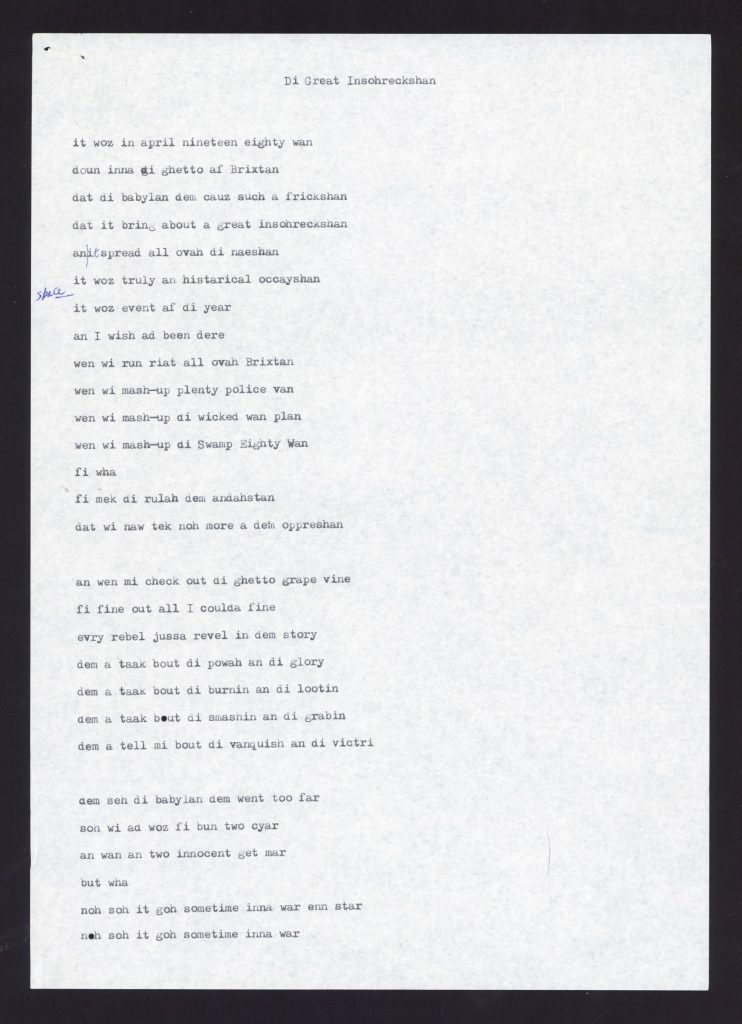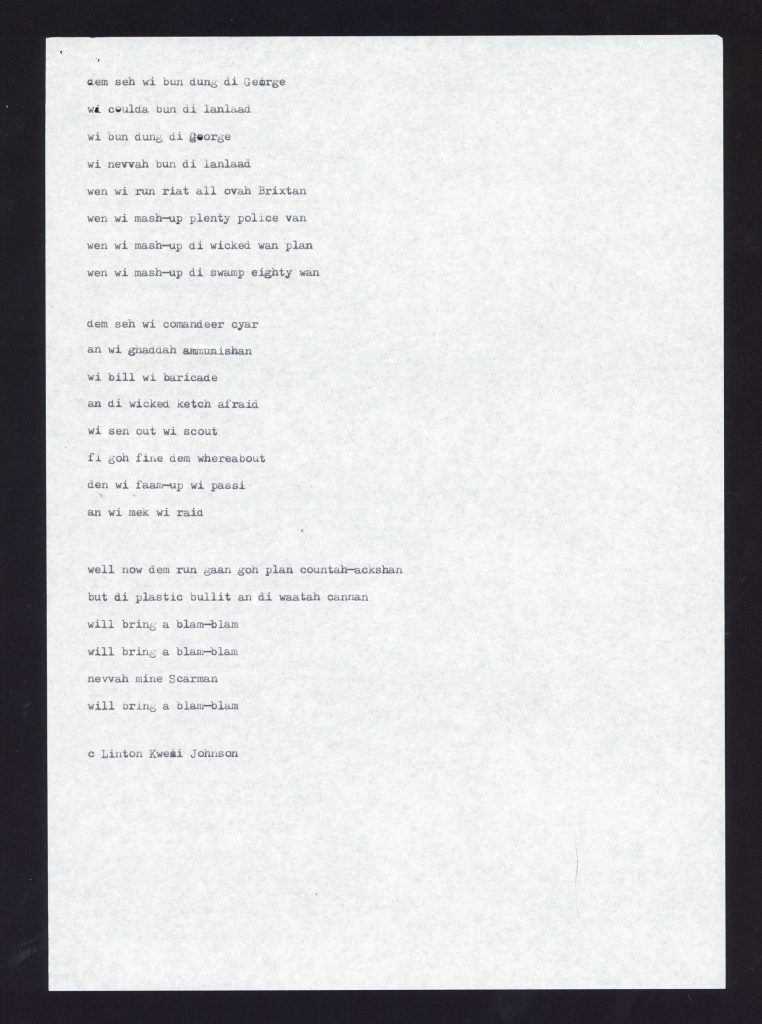“Writing was a political act and poetry was a cultural weapon…”
So stated the renowned Jamaican dub poet, recording-artist and activist Linton Kwesi Johnson (b. 24 August 1952). Based in the United Kingdom since 1963, in 2002 he became the second living poet, and the only black poet, to be published in the Penguin Modern Classics series.
In the Bloodaxe Books Archive, Special Collections holds a set of proofs for Linton Kwesi Johnson’s 1991 poetry anthology Tings an Times which accompanied an album of the same name. Amongst the proofs resides this draft typescript of Johnson’s great dub poem Di Great Insohreckshan which he famously wrote as a response to the Brixton Uprising which took place 40 years ago this year, in April 1981. The poem first featured on his album Making History in 1983.


Dub poetry, a term coined by Johnson himself, was a form of performance poetry of West Indian origin, written to be spoken out loud against a backdrop of reggae music.
Watch Linton Kwesi Johnson performing Di Great Insohreckshan.
The Brixton Uprising, also referred to as the Brixton Riots, took place 10-12 April 1981. It was the first large-scale racial confrontation between black British youth and white British police. The rioting was sparked by decades of injustices experienced by black people in the UK.
Next month will see the fortieth anniversary of the publication of the Scarman Report, commissioned by the UK government in response to the Brixton Uprising. Amongst other conclusions, the Report found there to be unquestionable evidence of the disproportionate and indiscriminate use of ‘stop and search’ powers by the police against young black people and placed the Brixton Uprising into the context of the racial disadvantage faced by them.
Linton Kwesi Johnson’s poetry is deeply political in its nature, dealing mainly with the experiences of being an African-Caribbean in Britain. Written and spoken in Jamaican Creole English, Di Great Insohreckshan railed against the injustice and oppression which brought about the tensions leading to the Brixton Uprising, giving full vent to black people’s anger and highlighting the government’s political failure.
When first performed, Di Great Insohreckshan grabbed and demanded the attention of those who heard it, with its intense, urgent, streetwise and intellectual delivery. Forty years on the poem is held to stand alongside TV and radio archive as a primary source in its own right, helping future generations understand the cultural and political upheaval that led to the Brixton Uprising of 1981.
